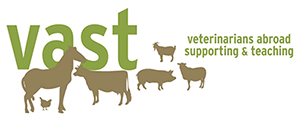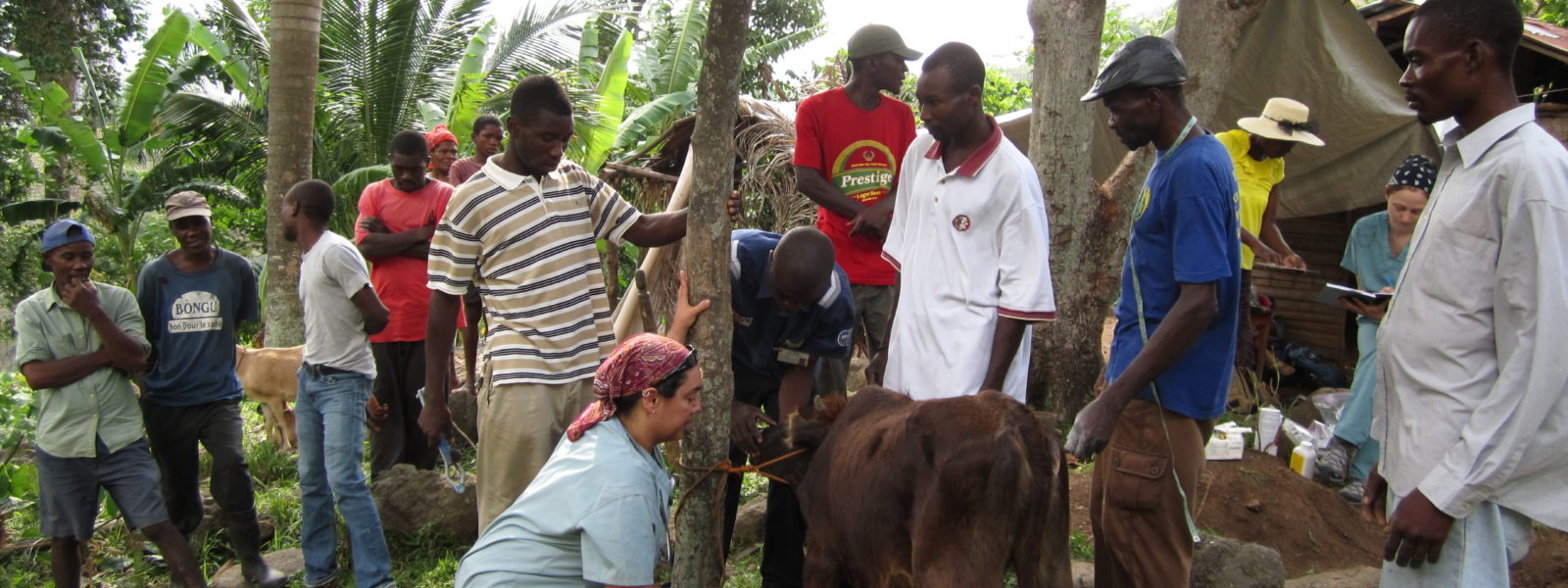
Clinics
The VAST educational clinics are offered to communities that do not often see veterinary or animal husbandry services. We provide training to the local animal health representatives in food animal care, disease prevention and treatment, and biosecurity. The goal is to teach people how to recognise key diseases in livestock before they become fatal, as well as to give locals the opportunity to have their animals’ health checked, vaccinated and dewormed. A secondary goal is to take much needed veterinary medicines and supplies to the population.
We focus on program development, and research into best practices in low-income/resource-poor areas. We anticipate that these additional skills and knowledge will permit a broader, more sustainable reach and perspective in the communities.
Haiti
Our first two years we focused our efforts in Haiti. Haiti is amongst the poorest countries in the world, with some of the highest infant mortality rates, illiteracy rates and infectious disease rates found globally. Since the level 7 earthquake in January of 2010, a cholera epidemic has devastated the working population, compromising their ability to rebuild. Add the fact that more than 80% of the population survives on less than $2 US/day, and it is understandable why individuals are unable to ensure that their livestock remain healthy and vaccinated. Unfortunately for most rural Haitians, all of their family's wealth and security are tied up in what few animals they own (chickens, goats, and the occasional pig).
Our first trip in May 6th to 22nd, 2012 involved establishing key relationships with the Departments of Agriculture, Health, and Education, as well as the University`s Department of Agriculture, and several practicing veterinarians down in Haiti. We taught a half day of university classes, and held two clinics. The clinics enabled us to treat 137 animals (cattle, mules, horses, pigs and goats), as well as train 8 Haitian animal health technicians in basic animal care. Our second trip in October 2013 enabled us to go to two other regions in Haiti. After running 3 days of clinics, we treated over 417 animals (cattle, mules, horses, pigs, goats, sheep and chickens) and trained 7 animal care workers in basic animal husbandry and disease recognition/treatment. We made some additional contacts, again taught 3 hours worth of university classes, and participated in two different community workshops.
Nepal
In November 2016 we went on our first trip to Nepal. We held 2 full day workshops and 2 full day community clinics, allowing us to train 10 new animal care workers. We also worked with 37 community members on their local home farms to improve biosecurity and welfare. Being there also gave us the opportunity to make connections with the veterinary college and various other local NGOs.
In Development
We are now hoping to develop two trip workshops in the near future, one to the Philippines and another follow-up trip to Nepal. We are in the midst of fundraising and organizing special events, and are currently accepting monetary and silent auction donations.
Each year we need to raise a minimum of $15,000 per trip to pay for interpreters and guides, within country travel expenses, buy medications and supplies, and secure space for on-site clinics. As all of us are volunteers we have few administrative costs, and more than 90% of monies raised are spent within the country of destination.

